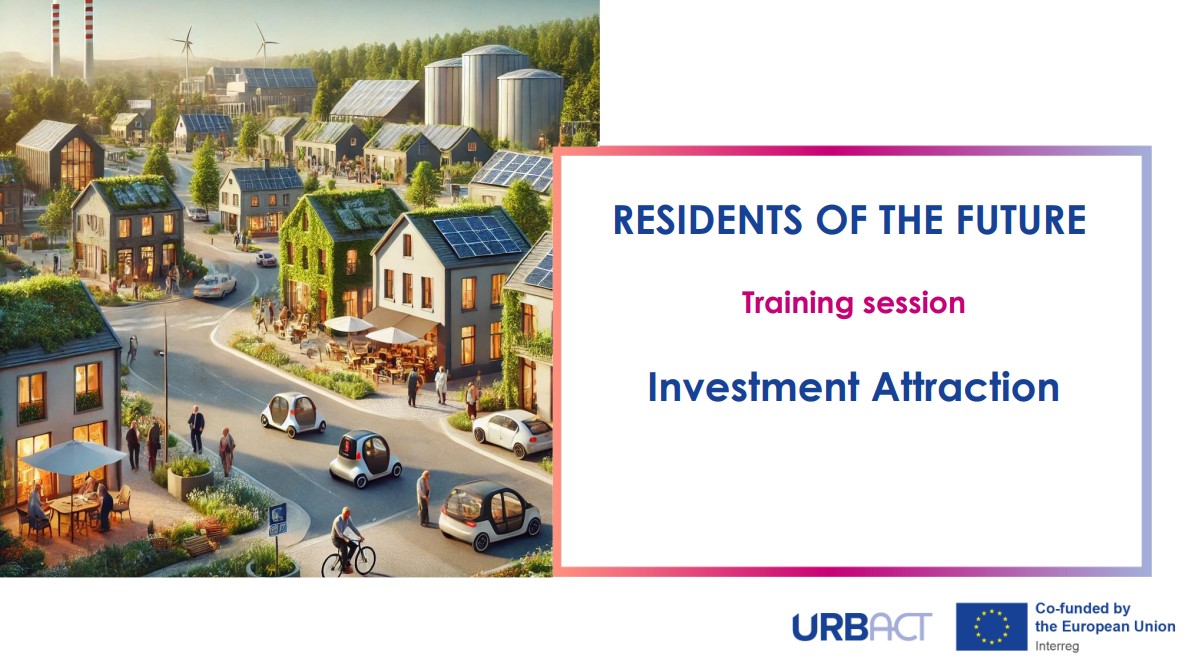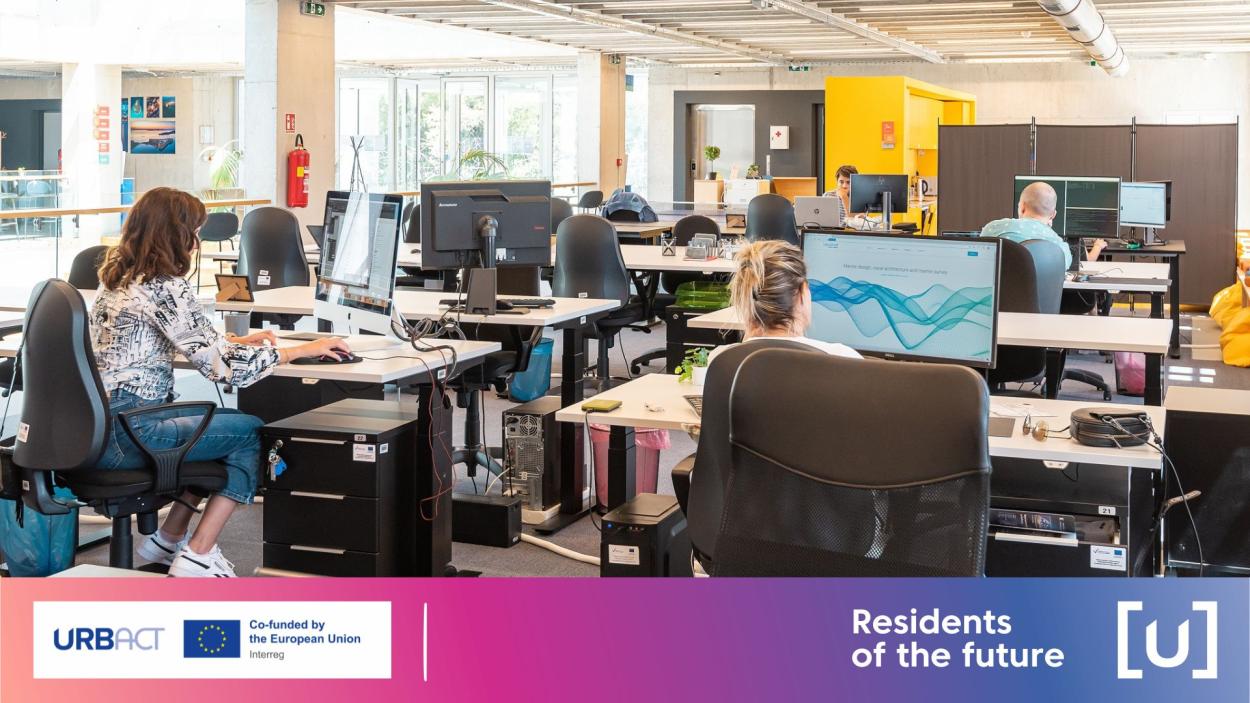
This was the focus of a key discussion at the Mangualde transnational meeting of the URBACT's Residents of the Future network in October 2024. Tiago Ferreira, the network’s lead expert, shared strategies to help small cities retain their residents and attract newcomers. Representatives from Šibenik, Mangualde, Mantova, Plasencia, Saint-Quentin, Alba Iulia, Saldus and Iisalmi attended, bringing valuable insights from their own experiences.

It's not about creating jobs. It's about creating BETTER jobs.
Young people today are looking for more than just jobs—they want exciting careers that pay well and have a future. For small cities, this means focusing on industries that are modern, dynamic, and forward-thinking. Some of the best options include:
• Clean Energy: Jobs in wind, solar, and battery storage aren’t just good for the planet—they’re also cutting-edge and highly desirable.
• Batteries and Electric Vehicles (EVs): The growing EV market brings opportunities for well-paid roles in a high-tech industry.
• Tech and Data: Software development, AI, cloud computing, and big data offer flexible, lucrative career paths.
• Electronics and Robotics: Manufacturing and automation are thrilling sectors with plenty of growth potential.
• Automotive Innovation: From EV components to advanced manufacturing, this industry is a magnet for investment and talent.
Sectors like clean energy, software, and electric vehicles provide these opportunities while aligning with global trends. By building a reputation for innovation, small cities can attract skilled workers and foster a vibrant, forward-thinking economy. Focusing on these industries positions small cities as exciting places to work and grow, attracting ambitious, skilled individuals.

How Cities Can Attract Investments?
To draw investors, small cities need a clear, well-structured plan that highlights their potential. Ferreira outlined a simple framework for small cities to attract investors. Here’s the recipe:
• Get Organized: Have a clear strategy that highlights your city’s strengths and shows why investors should choose you.
• Find Leads: Don’t wait for investors to come to you—go out and find them through networking, research, and outreach.
• Make It Easy: Streamline permits, simplify regulations, and offer support to make investing in your city hassle-free.
• Keep the Relationship Going: After investors are in, support them with workforce training, local supplier connections, and help with expansion.
By being proactive, simplifying processes, and maintaining strong investor relationships, cities can position themselves as prime locations for growth. A streamlined approach makes investing in small cities more appealing to global businesses. This ensures cities are not just competitive but also recognized as strategic destinations for development.
What Makes a City Stand Out?
Every small city has unique strengths that can be turned into selling points for investors .Identifying these unique advantages allows cities to craft a clear and compelling narrative about why they stand out in a competitive market. Some key selling points include:
• Existing industry clusters that create synergy.̺
• Skilled workers ready to jump into new opportunities.
• Strong infrastructure, from roads to high-speed internet.
• Affordable labor and business costs.
• An innovative environment, with universities and research hubs driving new ideas.
• Natural resources, or other unique features.
• A high quality of life, including safety, culture, and green spaces.
• A city brand that tells a compelling story to the world.
Whether it’s an innovative ecosystem, affordable costs, or a strong local workforce, showcasing these advantages is essential to attract attention and funding. A compelling city brand and strong infrastructure can further strengthen this appeal. By leveraging these assets, small cities can carve out a distinct identity that resonates with both investors and residents. By creating exciting job opportunities, fostering innovation, and highlighting what makes them special, small cities can hold onto their residents and attract new ones, too.
Through platforms like URBACT, small cities can exchange experiences and learn from each other
Collaboration and strategic planning are vital to the success of small cities striving for renewal. With the right investments, these cities can secure a bright future, offering opportunities and quality of life on par with larger urban centers. Partnerships through programs like URBACT foster shared learning and innovation, driving these efforts forward. Together, small cities can thrive as resilient, dynamic communities where everyone has the opportunity to succeed.

